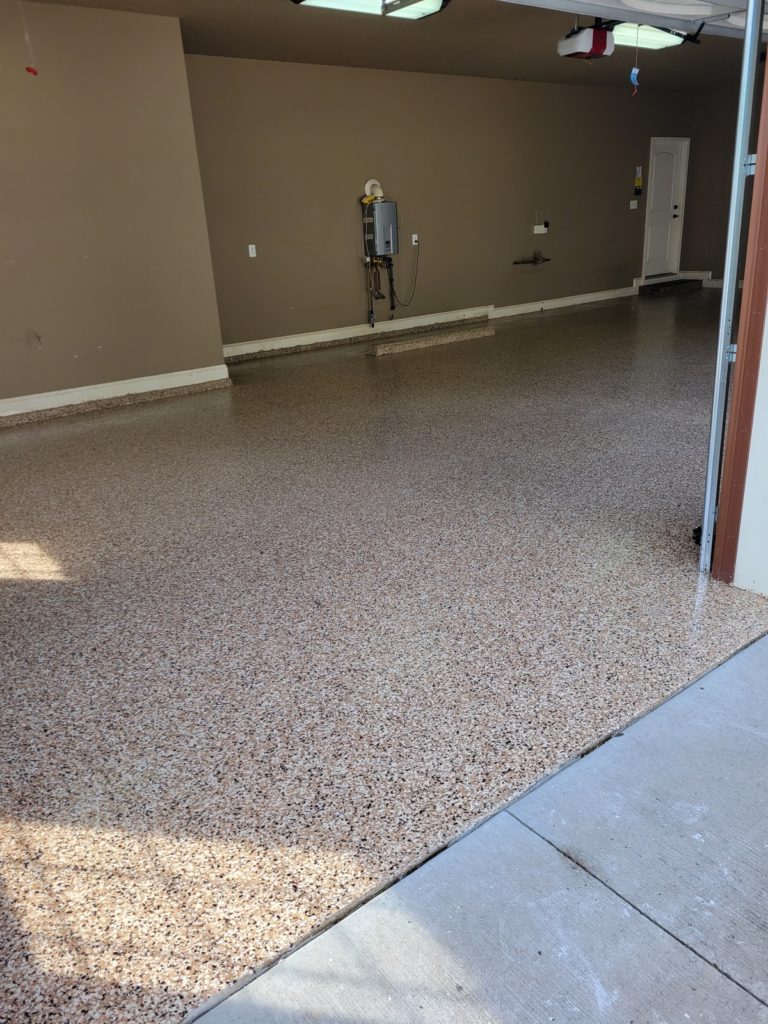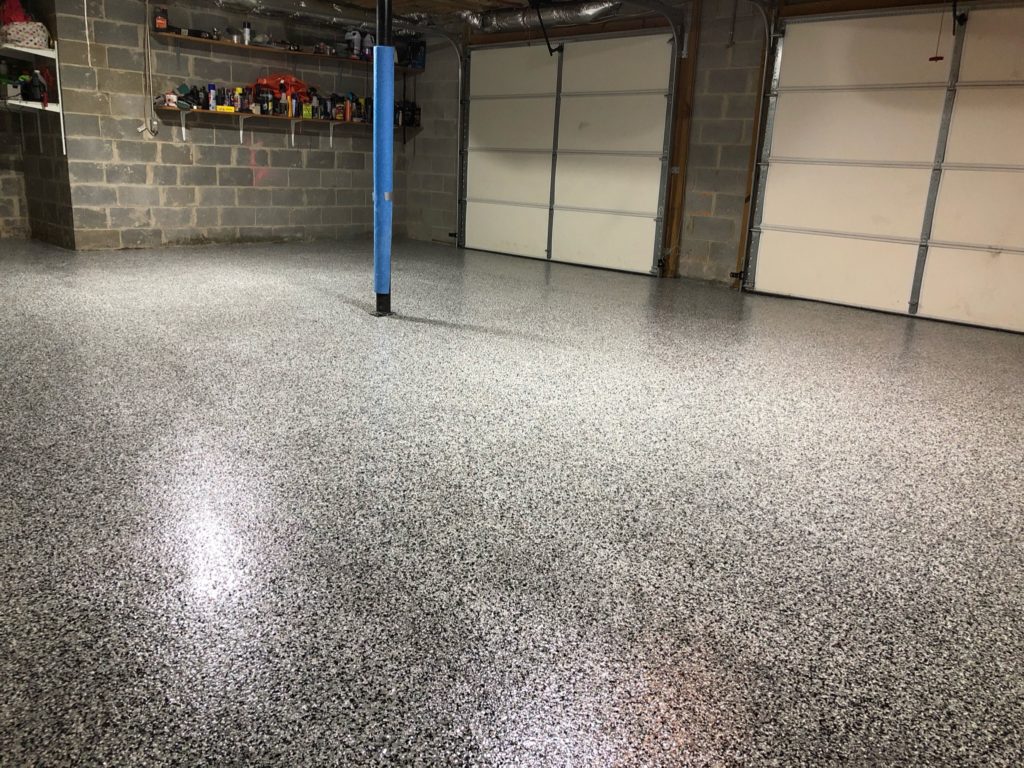
There are several solutions that offer durability and high resistance to harm, whether you’re looking into concrete flooring options for your house or place of business. The most excellent flooring is what we as owners want for our floors. No matter what, it’s a good idea to treat your concrete floor to prevent cracking, surface dusting, and moisture intrusion.
Concrete paint and concrete epoxy floor coatings are the two most popular options for flooring. You may choose which investment to make when protecting your concrete floor by learning the advantages and disadvantages of each type.
What is Epoxy Coating?
Strong adhesives, durable paint, coatings for floors and metals, and other applications are all possible with epoxy floors, which are long-lasting coatings. Epoxy coatings are produced chemically by reacting an epoxide resin with a polyamine hardener. The liquid epoxy coating transformation into a remarkably robust and long-lasting solid might take a few minutes to several hours.
Advantages of Epoxy Coating
Epoxy floor coatings consistently produce the same results after polishing. However, depending on your requirements, you can select the coating type, color, and thickness. Epoxy coatings are more resistant to chemicals than polished concrete, which is advantageous for any firm that must clean with potent chemicals.
Quality epoxy concrete coatings give a smooth surface and stain resistance, making them simple to clean and lowering maintenance expenditures for any business. Most importantly, you need a floor that can withstand stress, whether in your kitchen, basement, garage, or warehouse. Like other floor tiles, epoxy concrete coatings are incredibly durable and don’t chip or fracture. For every commercial establishment, it is the most affordable and challenging choice.
Issues Around Concrete Coatings
- Compared to concrete paint, concrete floor coatings are more expensive
- Removing coated floors is a labor-intensive procedure
- Concrete floors do not retain heat
- Polished concrete floors can be loud
What is Concrete Paint?
Like a water-based concrete stain, concrete paint is non-reactive. It achieves opaque, consistent color by filling the concrete’s surface pores. Due to its resistance to the free lime in concrete, concrete paint is especially suited for use on concrete.
Advantages of Concrete Paint
The majority of concrete paint is waterproof and designed for outside use. They are not waterproof, though. Without a rubber layer, this paint will deteriorate over time. Concrete paint was formerly only offered in a few different colors. Today, various paint manufacturers offer beautiful hues that are promised to remain vibrant throughout time.
Concrete provides excellent coverage, particularly after filling small to large holes and cracks with liquid cement. When the paint is applied using a roller, the porous concrete is filled, giving the surface a finished and comprehensive appearance. Concrete surface faults are covered, shielded, and concealed using concrete paint. Remember that some concrete flaws may reappear if the sealer is not used quickly after painting.

Issues Around Concrete Paint
- Not very chemically resistant
- Tends to peel and fade off quickly outside in the heat of the sun
- If concrete is wet, the paint will start to bubble up, creating air or water pockets underneath
- Slippery when the rainy season
- Not resistant to abrasion
Essentially, epoxy floor coating is on the winning side compared to concrete paint. Considering the pros and cons answers most of the questions commonly asked, especially when deciding what to use.

Call SSP Coatings Today for Your Free Quote
Do you need professional epoxy coating services? Call 423-342-4158 or go to www.garagefloorchattanooga.com to set up your consultation. If you have questions about our epoxy flooring, please visit our other Ask away pages! Always expect a prompt response from us along with top-notch work.
